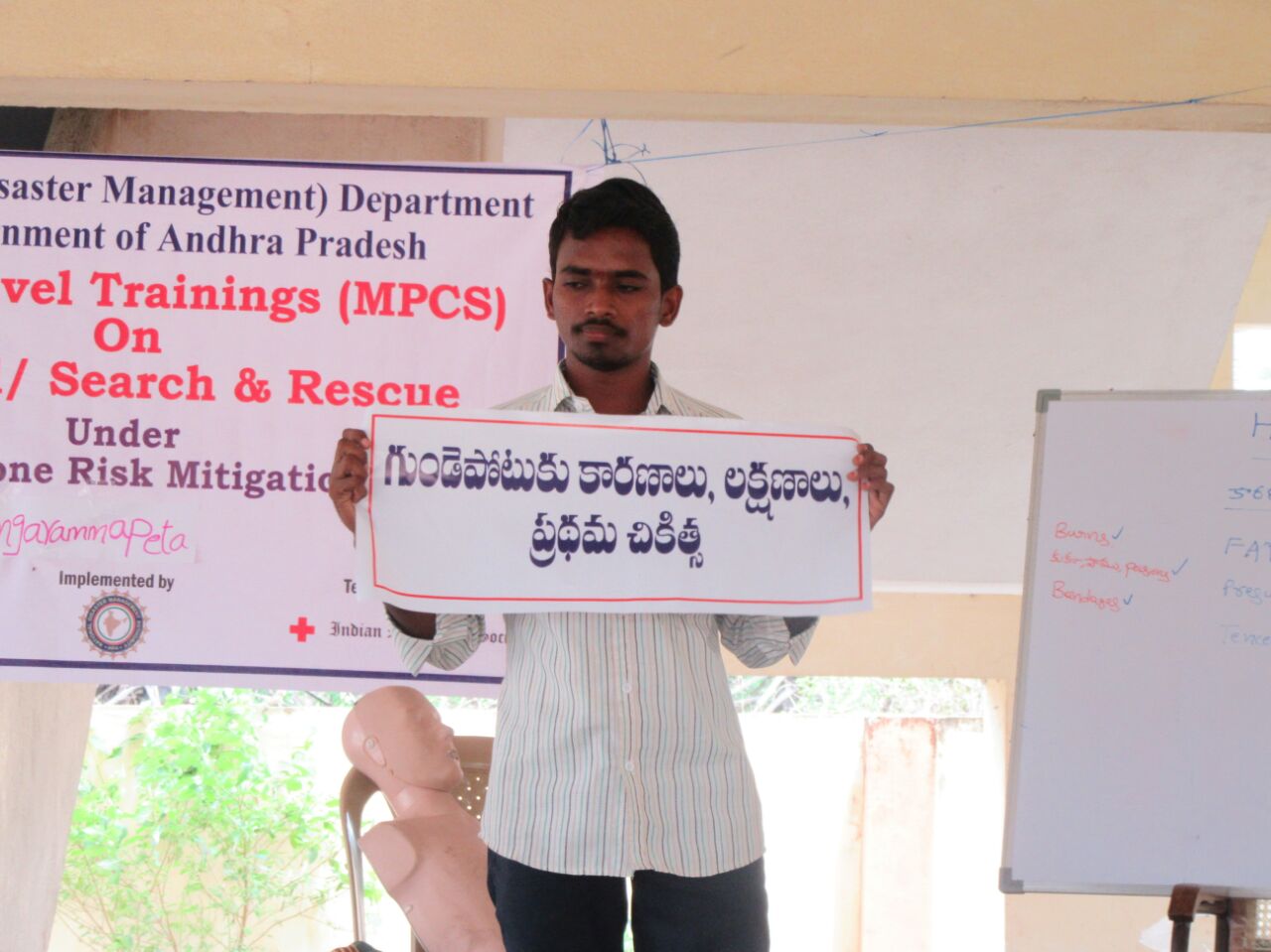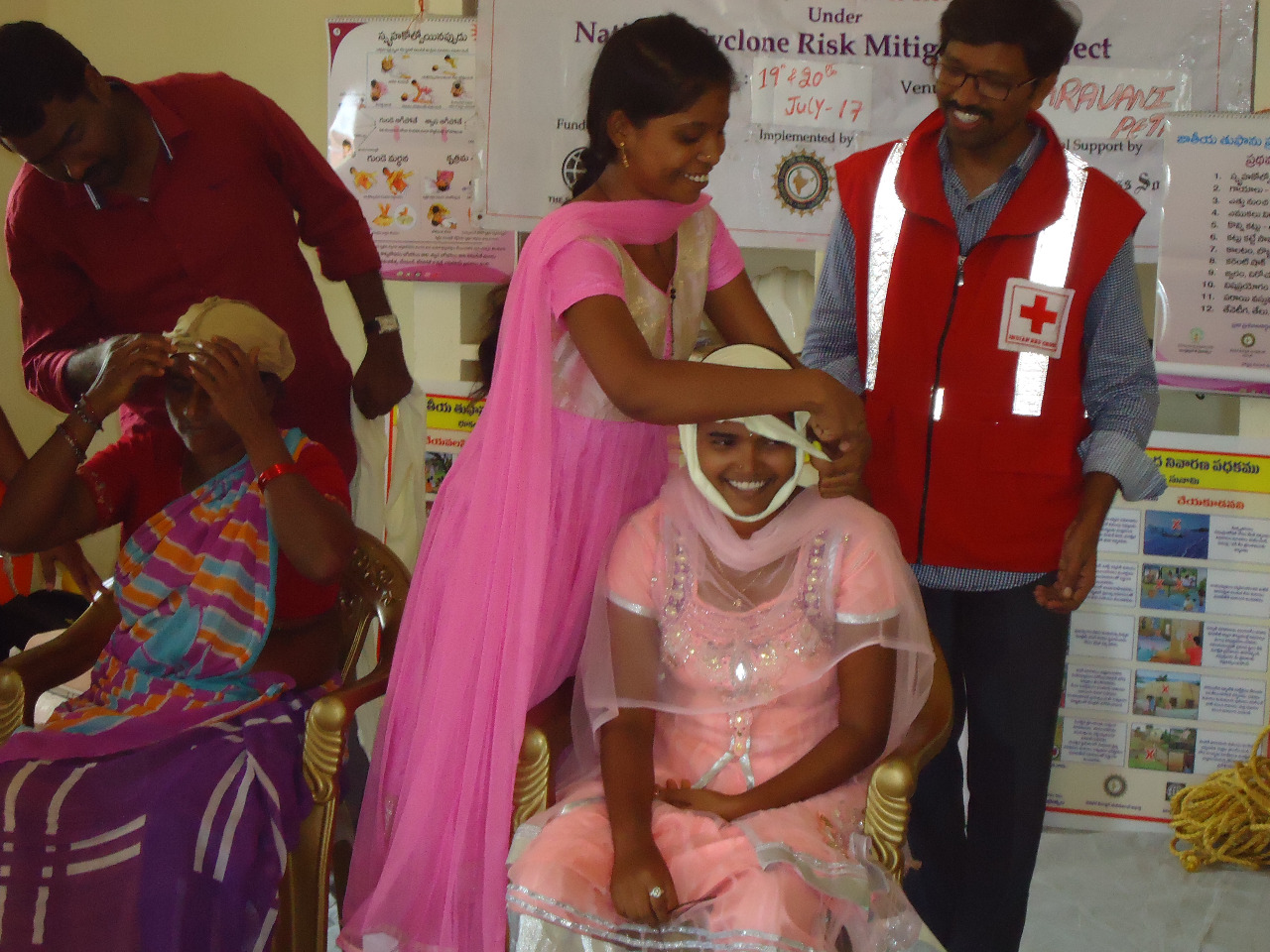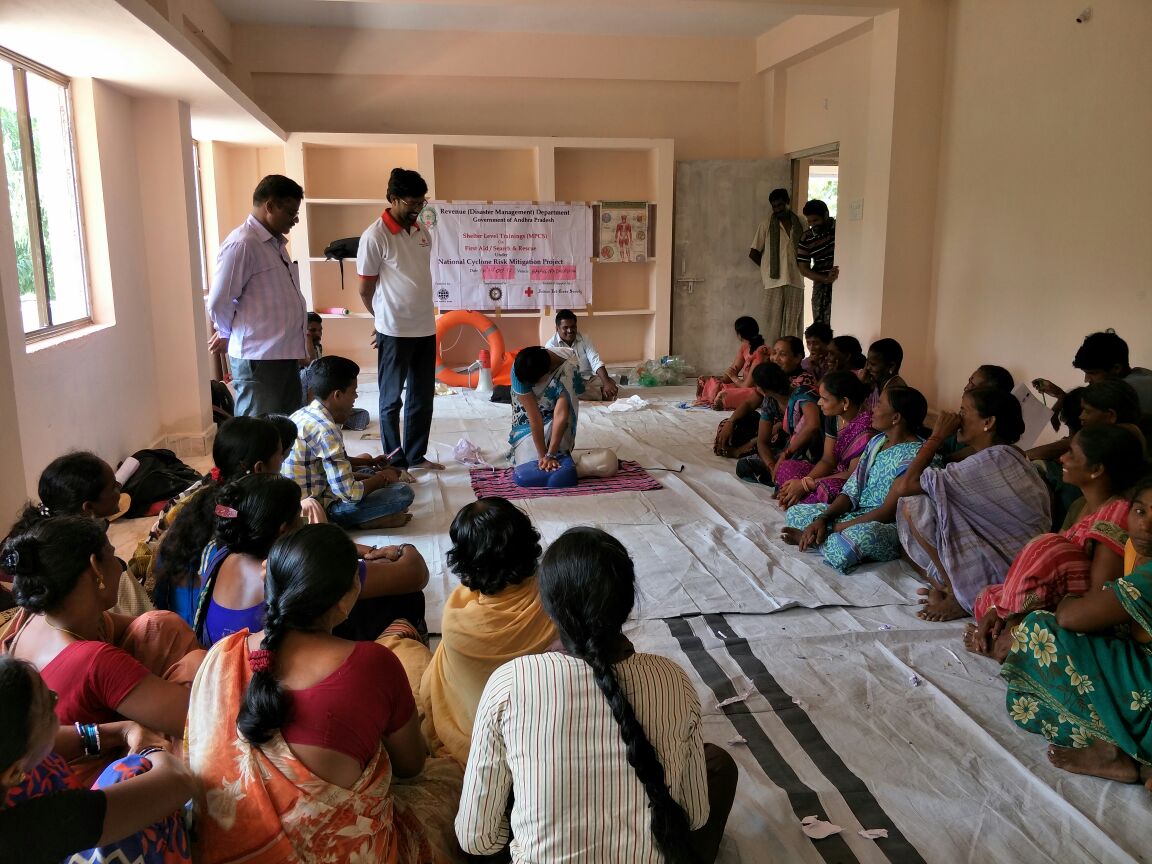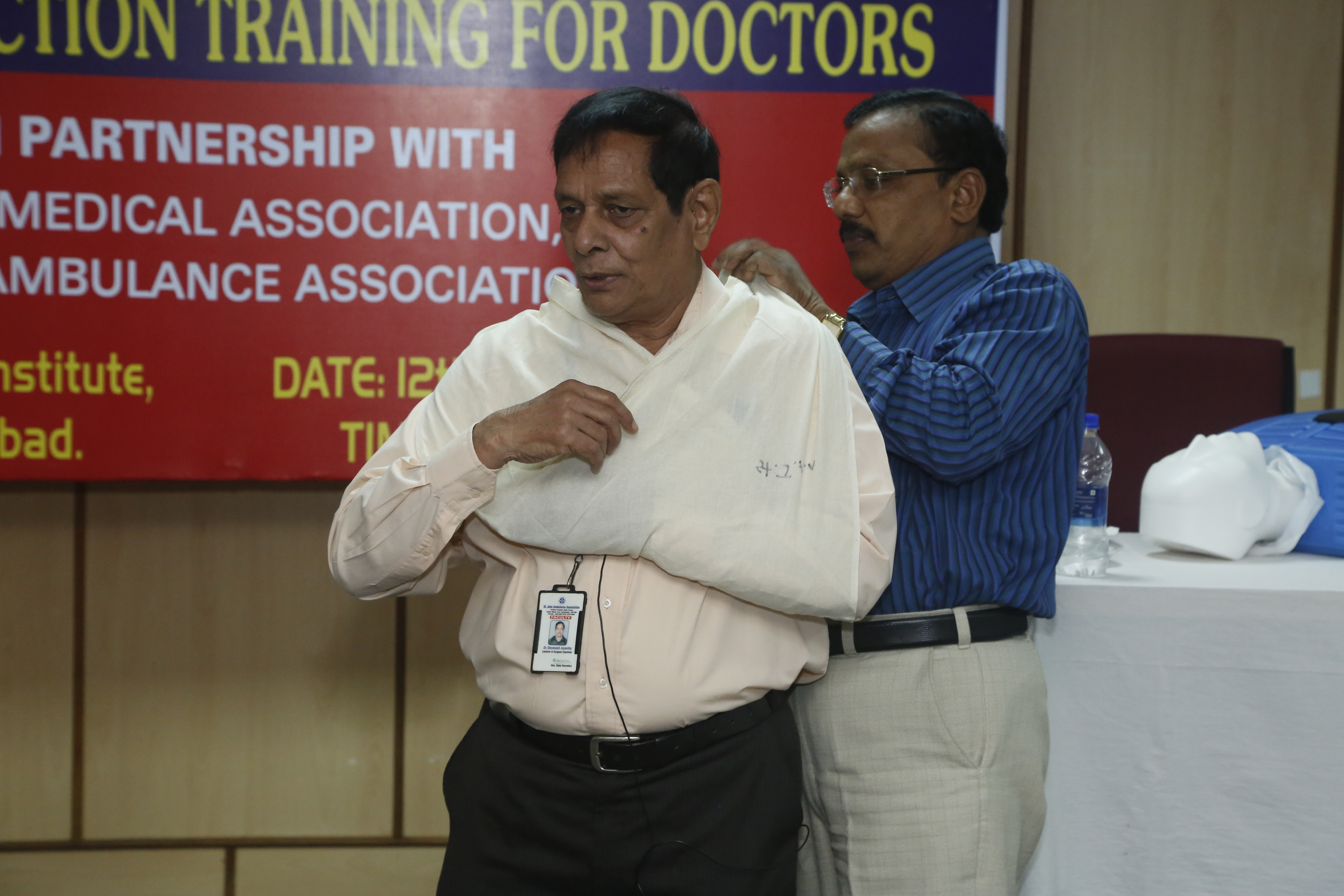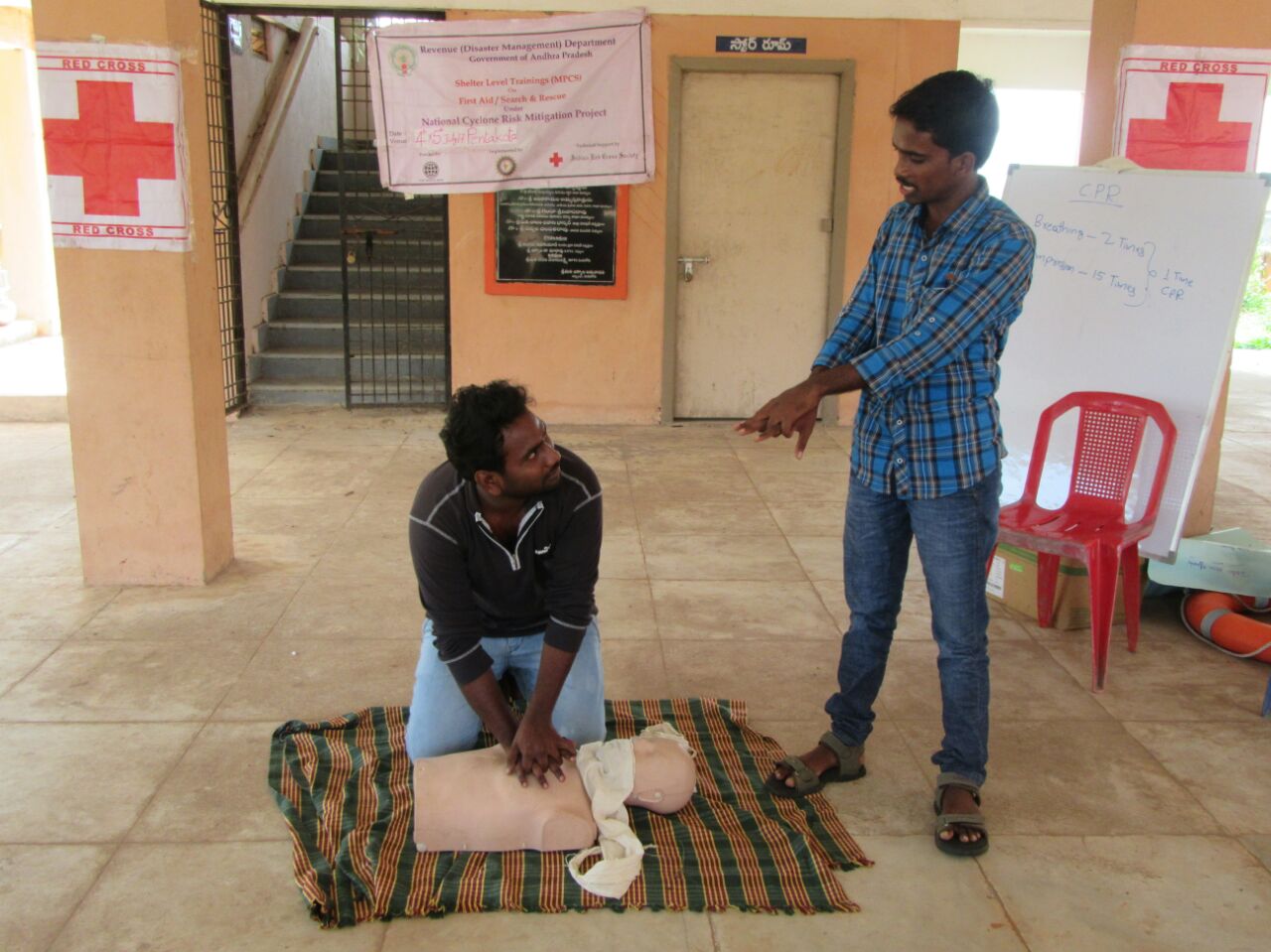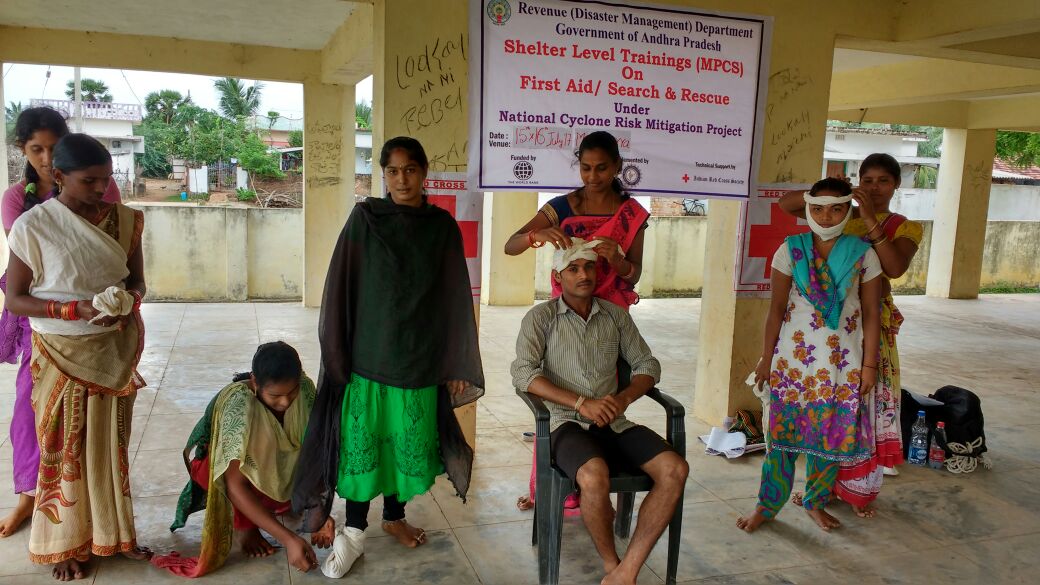First Aid can:
- Reduce the number of deaths, injuries from disasters or any other emergency
- Increase the capacity of students and communities in first aid response, and broaden their scope to develop the humanitarian response at the time of any emergency
| S.No | Name of the Course | Duration | Eligibility | Level | Validity |
| 1 | Senior First Aid (Professional ) | 16 Hrs | Everyone (except blind) | II | 3 years |
| 2 | Voucher | 16 Hrs | SFA (min 1 year) | II | 5 Years |
| 3 | Medallion | 16 Hrs | Voucher (min 1 year) | III | 5 Years |
| 4 | Label | 16 Hrs | Medallion (min 1 year) | IV | 5 Years |
| 5 | Lecturer | 32 Hrs (6 days) | Label (Min 1 year) | V | 5 Years |
| 6 | Lay Lecturer | 8 days | Medallion / Label/ Lecturer/ Doctor / Medical Nurse | VI | 6 Years |
Main components of First Aid Trainings
“On March 30, 2016, the Supreme Court of India gave "force of law" to the guidelines for the protection of Good Samaritans issued by the Ministry of Road Transport and Highways. The purpose of a Good Samaritan law is to provide legal protection to bystanders who come to the aid and rescue of victims of road crashes”.
- A Good Samaritan will not be liable for any civil or criminal action for any injury or death of the victim
- Good Samaritan who informs police or emergency service regarding an injured person not to be compelled to reveal his personal details
- Disciplinary action against public officials who coerce Good Samaritan to reveal his personal details
- Good Samaritan not to be forced to reveal his/her personal details: Disclosure of personal information including for the Medico Legal Case (MLC) Form to be made optional and voluntary
- Good Samaritans not to be forced to bear the initial cost of treatment: Ministry of Health and Family Welfare (MoHFW) to issue guidelines that no public or private hospital can demand payment for registration and admissions costs from the Good Samaritans
- Hospitals cannot refuse treatment to a victim: Lack of response by a doctor in an emergency situation to be considered as a “Professional Misconduct” and disciplinary action shall be taken against such a doctor (as per Indian Medical Council Regulations, 2002)
- The Good Samaritan can choose to be an eyewitness and cannot be compelled
- Eye witness to be examined in a single occasion
- Examination of an eye witness to be either through:
o Section 284 CrPC: Allows examination of a witness through a commission.
o Section 296 CrPC: Allows evidence to be given through an affidavit - Video conferencing may be used for examination of a Good Samaritan
